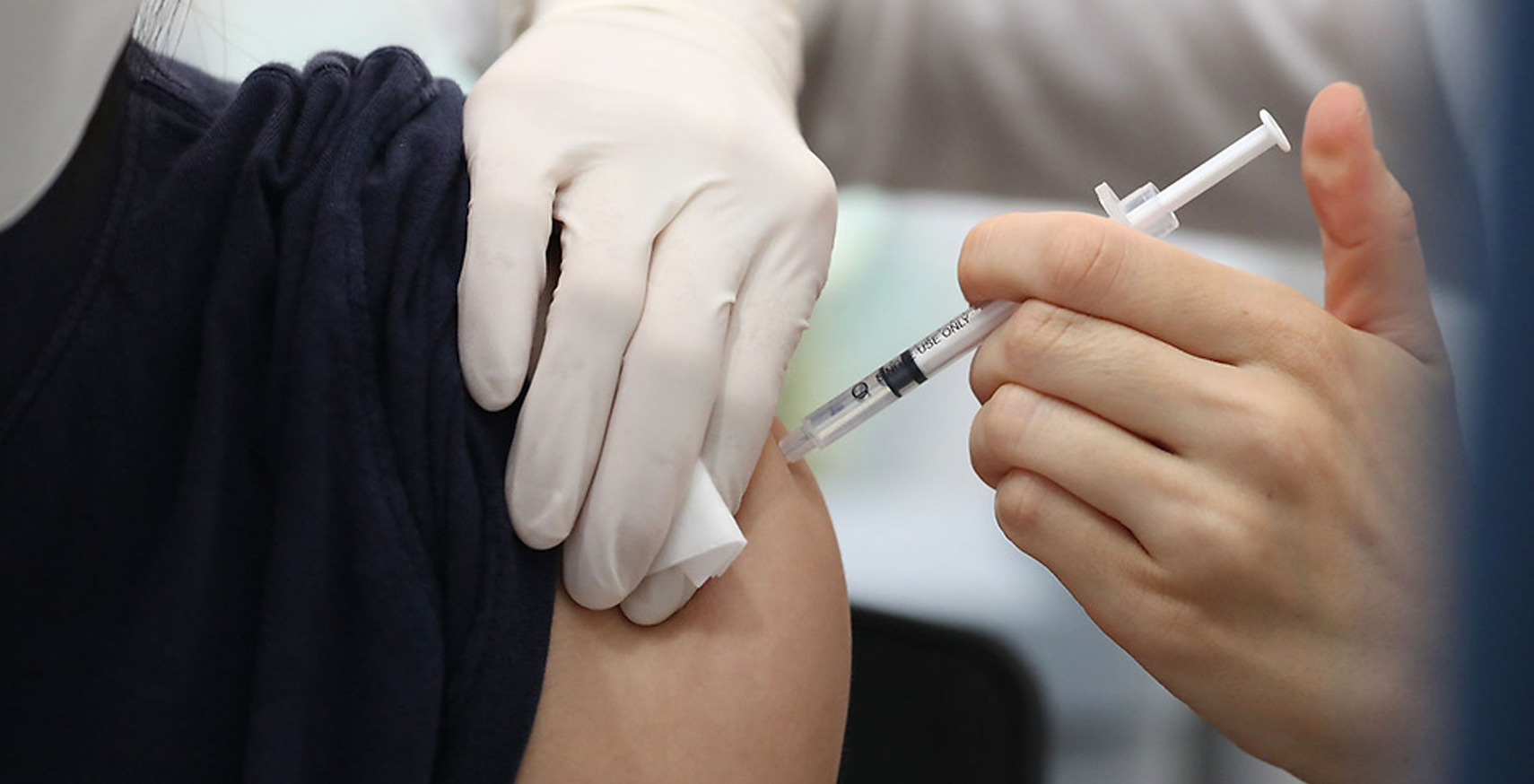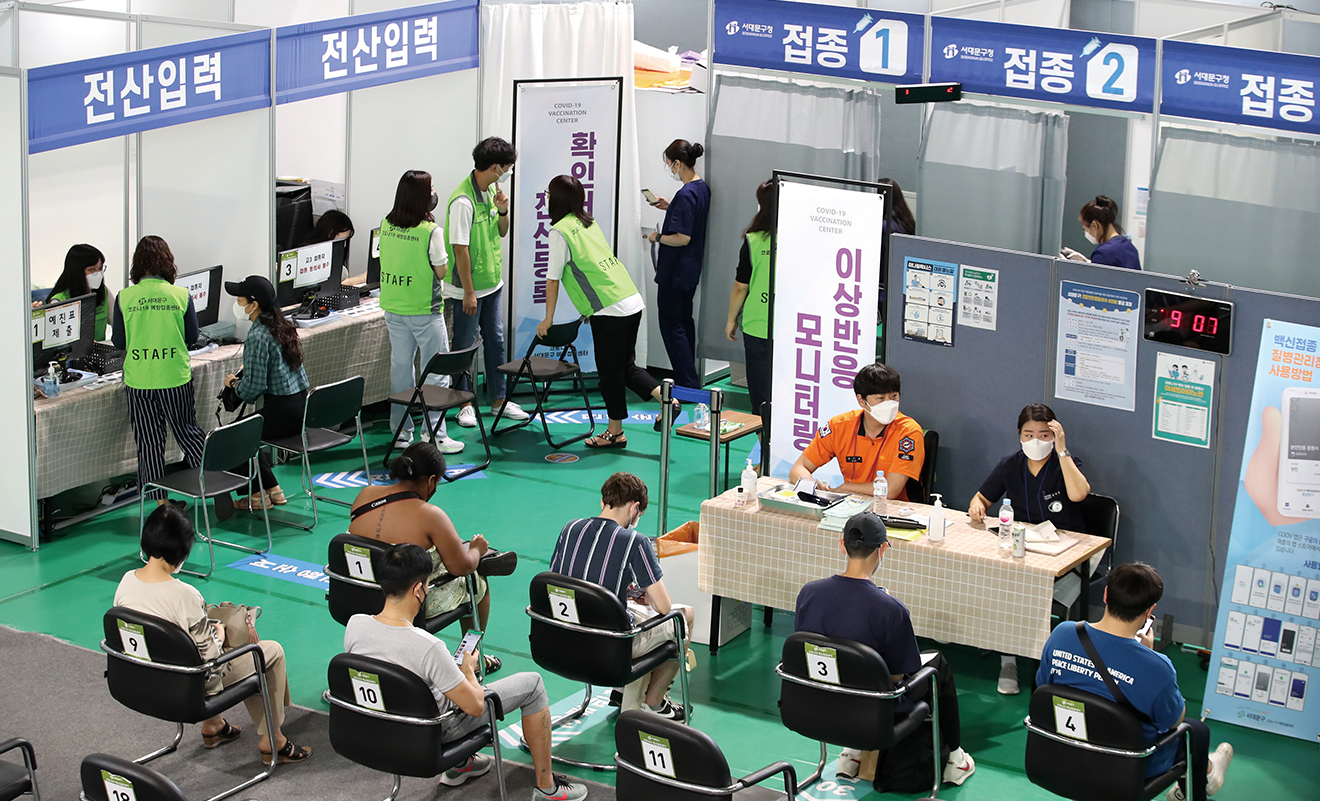September 2021

September 2021
As COVID-19 vaccine inequality rises globally, the Korean government’s new initiative to become one of the world’s top five vaccine producers by 2025 will take the nation a step closer to narrowing the widening vaccine gap by vaccinating the global population, especially in low-income countries.
Written by
Sohn Ji-ae
Photo courtesy of
Yonhap News
 A person gets vaccinated at a district center in Seoul. © Cheong Wa Dae
A person gets vaccinated at a district center in Seoul. © Cheong Wa Dae
As a surge in COVID-19 infections, coupled with the spread of highly contagious variants, fuel demand for vaccines worldwide, vaccine shortages persist worldwide. A global gap in vaccination rates keeps widening as many low-income countries have lagged behind other advanced nations in vaccinating their population.
According to statistics released on Aug. 11 by Our World in Data, a U.K. scientific online publication that focuses on global problems, only 1.2 percent of individuals in low-income countries are vaccinated. This shows that vaccine inequality remains an issue globally.
Amid this vaccine crisis, Korea is now taking the lead to solve the global challenge of securing a stable global supply of vaccines.
As slower-than-expected vaccine shipments from major international vaccine providers, including Moderna, impeded the pace of inoculation for the broader population, Korea pursues the development of homegrown vaccines to supply to its own people and, also, many others around the world.
The goal of manufacturing domestic vaccines appears to be materializing, as drugmaker SK Bioscience on Aug. 10 received the green light for the final phase 3 clinical trials for its COVID-19 vaccine candidate GBP510. The approval is meaningful as the first step for the commercialization of domestically made vaccines.
Following the news, the Ministry of Food and Drug Safety said that it would aim to commercialize the first vaccine in the first half of 2022. The news raised hope that the country would transition from being a vaccine receiver into becoming a “vaccine giver” that contributes to overcoming the infectious disease crisis that has impacted all of humankind.
President Moon Jae-in promised his full support for the vaccine development by saying that, “The government will provide support at all levels so that the clinical trials are carried out sufficiently and swiftly.”
 People undergo monitoring for side effects after being vaccinated.
People undergo monitoring for side effects after being vaccinated.
The development of homegrown vaccines is expected to further speed up, as President Moon pushes forward with the development of homegrown vaccines at national level.
The president on Aug. 5 announced a national strategy for becoming a “global vaccine hub” that can provide a sufficient supply of doses to many parts of the world. The strategy aims to ensure “Korea joins the ranks of the top five global vaccine production powerhouses by 2025.”
Currently, seven local companies, including SK Bioscience, are developing multiple types of COVID-19 vaccines. The strategy aims to boost government support for these vaccine developers by investing KRW 2.2 trillion (nearly USD 2 billion) over the next five years.
Under the initiative, the government will significantly expand tax benefits for vaccine-related research and development (R&D) and facility investments. The plan also aims to ensure that Korea is self-sufficient in the areas of technology and key materials necessary for vaccine production, which the government believes will help domestic firms to maximize their production capabilities.
In addition, the government will expand the human capital, including medical scientists, clinical trial experts and specialists in the biopharmaceutical industry. Global collaboration will be strengthened, too.
Korea’s ambition to ramp up vaccine production goes beyond containing the current COVID-19 crisis. The government also looks to brace for future pandemics and their subsequent impacts on the economy.
As many experts and media put it, for Korea to succeed in becoming a global vaccination hub, it will be crucial to enhance its collaboration with global vaccine producers while developing “effective” indigenous vaccines.
One thing that is clear, though, is that the government’s ambition to become a global vaccine hub has the potential to expand Korea’s role as a global leader in reducing vaccine inequality between the global rich and poor by producing vaccines necessary for saving the lives of the global population from the pandemic.